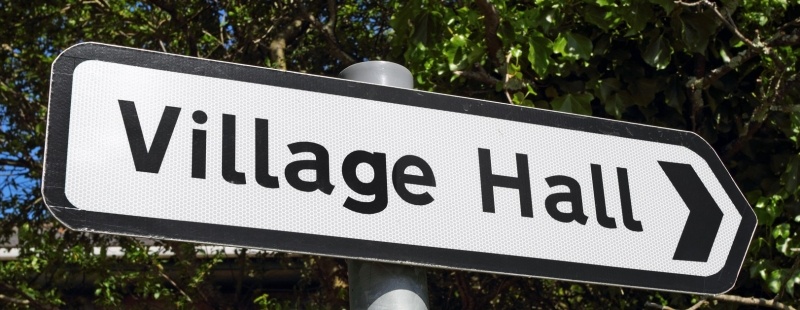Village hall management committees take on responsibility for the overall management and administration of the charity, so its important village hall trustees are aware of their roles and legal responsibilities during the COVID-19 crisis. Unless an essential service is being operated from your village hall you will be expected to close your village hall until the restrictions on non-essential services are lifted, or at least eased. Here are some practical guidance points:
The building:
- Remove any valuable items;
- If you have a bar, secure or remove your stock of alcohol;
- If other community organisations have office space within your village hall remind them that they should remove their own property before the building is secured;
- Turn off appliances;
- Turn off the water and gas at the mains unless it is essential to leave them on;
- Take meter readings so that you can deal with any discrepancies in utility bills when the crisis is over;
- Check that the building is locked, and the windows are secure;
- If you have a letterbox seal it closed, and arrange for any post to be redirected for the duration of the crisis;
- Clear away rubbish, especially waste paper, timber, and anything that is combustible;
- If you have a gated car park, lock the gates unless other people have a right of access across your car park to adjoining property;
- Arrange for the hall to be checked at regular intervals.
Insurance:
- Notify your insurance company that the village hall is closed and let them know what you have done to secure the building;
- Ask if you need to do anything else to be sure that you remain covered by your insurance policy;
- Check if you have business interruption cover. It is unlikely that you will be covered for the loss of income from events, bar taking and from groups who are regular users of the village hall because of the COVID-19 crisis. This type of cover commonly only applies if the building or the access to it has been physically damaged.
Rates:
- Check the government website regularly to be sure that you are getting the maximum relief, this should be 100%;
- Apply through your local authority for any relief that you are not getting.
Your landlord (If you rent your village hall):
- Tell your landlord that you are closed;
- Ask for a reduction in your rent both for the duration of the immediate crisis and for a period after restrictions start to be lifted to give you time to get back on your feet;
- If your landlord insures the village hall, remind them to contact the building insurer, and let your landlord know what you have done to secure the village hall;
- Be aware that that the Coronavirus Act 2020 forbids landlords who rent commercial premises on business tenancies from forfeiting leases on grounds of arrears of rent until 30th June, or later if this period is extended by the government.
Your trustees:
Be sure that all your trustees understand the importance of following the new legislation, government guidelines, and insurer's and landlord's requirements to avoid the risk of personal liability.
If your village hall Is staying open because it provides an essential service:
- You and your service users must keep it very clean;
- Provide soap and sanitizer;
- Take steps to ensure that staff and visitors can remain at least at least 2 meters away from each other;
- Set up a queuing system with spaces marked every 2 metres for those needing to access the village hall;
- Tell your insurers that you are remaining open and the essential service that is operating from the village hall;
- Carry out risk assessments to ensure that you are compliant with government regulations and your insurer's requirements.
For more information on the legal services we offer to charities and village halls, visit our dedicated charity services webpage, call 01603 693500 or email us using the 'Make an enquiry' form.
*This article is provided for general information purposes only and does not constitute legal advice or other professional advice.
